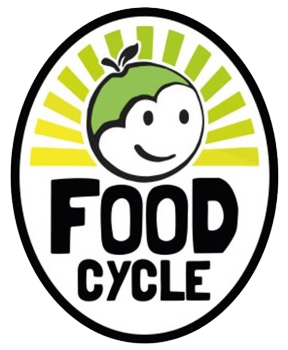FoodCycle
FoodCycle[edit | edit source]
FoodCycle is a UK-based charity that aims to reduce food waste and food poverty by serving meals to those in need. The organization collects surplus food from supermarkets and other food businesses and uses it to prepare nutritious meals for people who are at risk of food poverty and social isolation.
History[edit | edit source]
FoodCycle was founded in 2009 by a group of volunteers who wanted to address the issues of food waste and food poverty. The organization started with a single project in London and has since expanded to multiple locations across the United Kingdom.
Mission and Vision[edit | edit source]
FoodCycle's mission is to "make food poverty, loneliness, and food waste a thing of the past for every community." The charity envisions a society where no one is hungry or lonely, and where food waste is minimized.
Operations[edit | edit source]
FoodCycle operates by collecting surplus food from supermarkets, farms, and other food businesses. This food is then used to prepare meals in community kitchens, which are served to people in need. The organization relies heavily on volunteers who help with food collection, meal preparation, and serving.
Volunteer Involvement[edit | edit source]
Volunteers are the backbone of FoodCycle's operations. They participate in various activities, including collecting food donations, cooking meals, and serving guests. Volunteering with FoodCycle provides individuals with an opportunity to give back to their communities and help those in need.
Impact[edit | edit source]
FoodCycle has had a significant impact on reducing food waste and alleviating food poverty in the UK. By using surplus food to create meals, the organization not only provides nourishment to those in need but also helps reduce the environmental impact of food waste.
Challenges[edit | edit source]
Despite its successes, FoodCycle faces several challenges, including securing consistent food donations, managing volunteer resources, and expanding its reach to more communities in need.
Related pages[edit | edit source]
Search WikiMD
Ad.Tired of being Overweight? Try W8MD's NYC physician weight loss.
Semaglutide (Ozempic / Wegovy and Tirzepatide (Mounjaro / Zepbound) available. Call 718 946 5500.
Advertise on WikiMD
|
WikiMD's Wellness Encyclopedia |
| Let Food Be Thy Medicine Medicine Thy Food - Hippocrates |
Translate this page: - East Asian
中文,
日本,
한국어,
South Asian
हिन्दी,
தமிழ்,
తెలుగు,
Urdu,
ಕನ್ನಡ,
Southeast Asian
Indonesian,
Vietnamese,
Thai,
မြန်မာဘာသာ,
বাংলা
European
español,
Deutsch,
français,
Greek,
português do Brasil,
polski,
română,
русский,
Nederlands,
norsk,
svenska,
suomi,
Italian
Middle Eastern & African
عربى,
Turkish,
Persian,
Hebrew,
Afrikaans,
isiZulu,
Kiswahili,
Other
Bulgarian,
Hungarian,
Czech,
Swedish,
മലയാളം,
मराठी,
ਪੰਜਾਬੀ,
ગુજરાતી,
Portuguese,
Ukrainian
Medical Disclaimer: WikiMD is not a substitute for professional medical advice. The information on WikiMD is provided as an information resource only, may be incorrect, outdated or misleading, and is not to be used or relied on for any diagnostic or treatment purposes. Please consult your health care provider before making any healthcare decisions or for guidance about a specific medical condition. WikiMD expressly disclaims responsibility, and shall have no liability, for any damages, loss, injury, or liability whatsoever suffered as a result of your reliance on the information contained in this site. By visiting this site you agree to the foregoing terms and conditions, which may from time to time be changed or supplemented by WikiMD. If you do not agree to the foregoing terms and conditions, you should not enter or use this site. See full disclaimer.
Credits:Most images are courtesy of Wikimedia commons, and templates, categories Wikipedia, licensed under CC BY SA or similar.
Contributors: Prab R. Tumpati, MD

